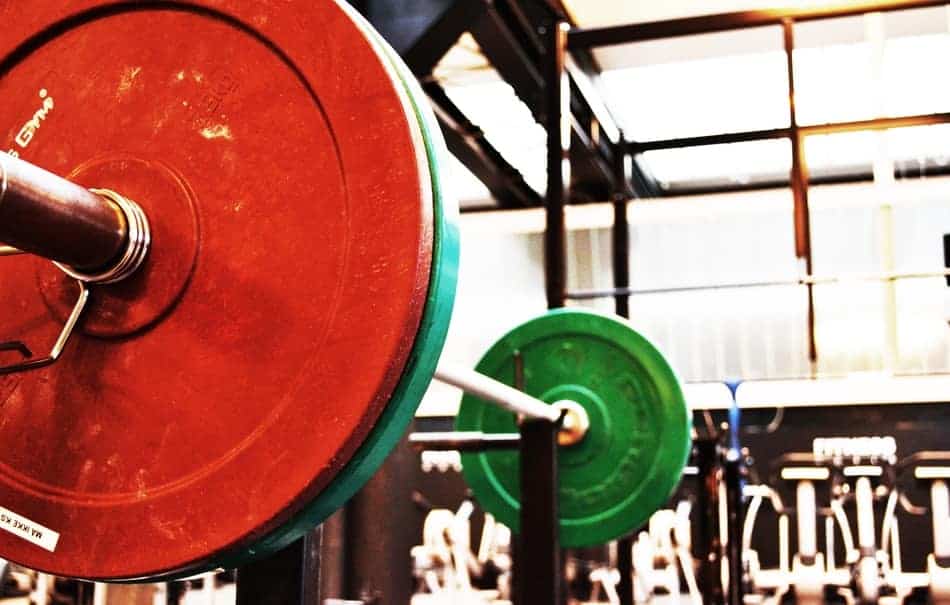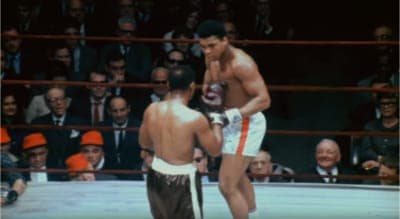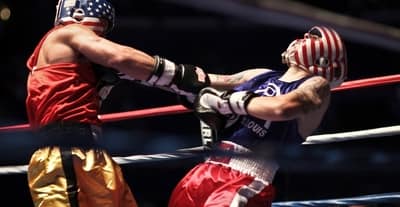
If you ever trained or thought about starting training boxing, you probably have wondered if the strength really matters in a boxing match/boxing sparring session. So did I. Therefore I did a research. And here is what I found out:
Unlike in other combat sports such as wrestling or MMA, in boxing, the strength ISN’T a deciding factor. The skill and the stamina of the boxers are much more important. Also, to have a strength advantage over your opponent doesn’t necessarily mean that you punch harder than him. Things such as the explosiveness and the technique are much more important. But still, there are some situations where the strength can help you take the upper hand. So let’s dive into what are the cons and pros of having a strength advantage in boxing.
Skill and stamina are more important
The most of the exercises that boxers do to prepare themselves for a fight are cardio related. They like more to run, spar and even swim than to do strength workouts and lift heavy. That’s because the boxing match is rather a marathon than a sprint. You need to have a great cardio to keep fighting for 12 rounds, each of them 3 minutes long.
This is why the stamina is more important than the strength. If you are strong, but your stamina is bad, you may have good 1 or 2 rounds, but after that chances are that you will get tired. And when you start feeling the exhaustion, it will be much harder to defend yourself from your opponent’s punches. Even if the strikes don’t really hurt you, the referee may stop the fight, just because you aren’t defending yourself.
A great example of this was the fight between Conor McGregor vs Floyd Mayweather. Conor has won the first two/three rounds, but then he started to gas out. Floyd started putting pressure on him which made the situation for Conor even worse. Eventually, the referee stopped the fight, because Conor was just eating Floyd’s punches with his hands down.
If your stamina isn’t good enough so you can last 12 rounds, the only options to win the fight are via KO or TKO. And that isn’t always a great gameplan, especially if you are fighting against a skilled defense boxer.
Skill level
It doesn’t matter how strong you are, you’re not going to punch hard if your technique isn’t on point. To have a big punching power, you need to transfer the power from your legs, through your body into your hands efficiently. To do that you need to develop proper technique and to practice a lot. The exercises I recommend are:
Shadowboxing – to learn how to execute the punches correctly. You can start with minimum power, just focus on the proper form.
Heavy bag – training on a heavy bag, you can increase your punching power significantly. But before you start, better warm up, to prevent hand or wrist injuries.
If you want to improve your boxing skills but also your conditioning (explosiveness, endurance etc) but you aren’t sure which exercises you should do, check out my article on the best boxing exercises for beginners.
Explosiveness vs strength
Like I already mentioned, to be strong doesn’t necessarily means that you punch harder. But there is something else we need to note: the strength and the explosiveness are two different things. So here is the difference between them:
Simply put the strength is the maximum weight your muscles can lift.
And the explosiveness is the maximum power your muscles can generate in minimal time.
So if, for example, you are a powerlifter, you will probably be not as explosive, as strong. But in boxing, you need to be explosive so you can generate more power for less time and punch harder.
It’s obvious that the bigger your muscles, the stronger and more explosive you are. But both things can be developed via different exercises. For example, the weightlifting is a great exercise for increasing your strength. But for increasing your explosiveness exercises such as step box push-ups, squat jumps etc.
Big muscles = bad cardio
The more muscle mass you have the stronger you are. But also the faster you are getting tired. That’s because the muscles are consuming a lot of energy, even if they are resting. And the bigger muscles are consuming even more energy. That’s why you won’t see a bodybuilder competing in a marathon. Their huge muscle mass will make them get tired quicker.
That applies also to boxing. The more muscular boxers usually have problems in the later rounds. They are starting to be more flat footed and to move slow.
Different styles
The importance of the boxer’s strength can vary depending on his style. For example, if you are an infighter (or a swarmer – someone who fights at a close distance), your strength will be much more important, than if you are an out boxer. That’s because you will fight at a closer distance, so it’s much more likely to get into a clinch.
And there the strength can really matter. Imagine fighting against a stronger guy who captured both of your arms under his arms. You will have to work hard to get out of there. You will spend a lot of energy trying to break up the clinch.
Also, the stronger guy can control you easily in such situations. Fighting against a stronger guy can be a huge problem for the infighters. A good example of this is the fight between George Foreman and Joe Frazier. Foreman was much stronger than Frazier (who was an infighter), so he controlled him or pushed him away every time Frazier tried to close the distance.
On the flip side, if you are an out boxer (someone who fights from a long distance), you will get into clinches much more rarely. Because you will try to maintain a distance between you and your rival, using your footwork and your jab.
Muhammad Ali used a similar approach to his fight against the much stronger Sonny Liston. During the fight, Ali used mainly his jab and cross, to keep his opponent at a distance. Thus Liston couldn’t use his strength advantage in the clinches (simply because there aren’t any clinches).
But regardless of your style, sometimes there will be situations where a stronger boxer will try to tie you up in a clinch. Thus he can exhaust you, break your momentum or even land some punches in the clinch. So here is what I recommend in such situations:
- Put your head as much closer as possible to your opponent so he can’t hit you
- Don’t wrestle with the other boxer, save your energy
- Wait for the referee to break the clinch – clinching isn’t allowed for long, so soon or later the referee will break it
Where the strength can help
Like I mentioned above, the strength can help you take the upper hand in the clinches. But there are more situations where it can be a deciding factor.
When you spar, you have probably tried to parry your opponent punch pushing it downward and the counter him with a cross. That’s a basic boxing technique (and is one of my personal favorites). And is very simple, yet effective- wait for your rival to throw a straight punch (jab or cross) then push it downward with your lead hand and throw a cross/rare hook.
The problem comes when you are fighting against a stronger opponent. For example three weeks ago I spar with a very short but very strong guy. He was throwing straight punches at me and I decided to use this technique against him.
But he was so stronger than me that I could even push his hand downward. He just threw punches and I couldn’t parry them, so I just block them. That’s another example of how the strength may help you in a boxing match or sparring.
Pulling the gloves – If you ever watched Vasyl Lomachenko’s fights, you probably have noticed how he likes to pull his opponent’s gloves when they cover up. He just uses his lead hand to pull down one of the hands of the other boxer and then he lands a clean cross. But imagine he is fighting against a much stronger rival. Could he pull the glove so easy? I doubt.
Conclusion
In boxing, in certain situations, the strength can matter. But is it generally an important factor in the boxing? Absolutely not.
The skill, the stamina and even the toughness of the boxer are much more important.



